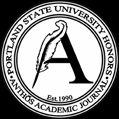Abstract
Ever since its first known usage during the so-called "Jew Bill" controversy concerning the naturalization process for English Jews in the 1750s, the term Jewish Question has connoted a fairly simple, straightforward idea: How should a state craft policies to "properly" handle its Jewish population. However, its inherent subjectivity and the sheer multitude of possibilities ensured that no correspondingly simple, straightforward answer to the Jewish Question was offered in any country throughout Europe. Mired in centuries-old religious strife, constantly shifting boundaries and mounds of legislation, Russia's encounter with the Jewish Question stands out as one of the most complex— capable of perplexing even its most dedicated and knowledgeable scholars. Given this track record of bewilderment, historian Simon Dubnow questioned Tsar Alexander III's request for the formation of the High Commission for the Study of Existing Laws on the Jews in early 1883, which followed two years of heavy anti- Jewish pogroms centered in southwestern Russia. As a student of history, the quick-witted Dubnow recognized that the group better known as the Pahlen Commission faced a "Sisyphus task" that previous "bureaucratic creations" in Russia had promptly abandoned due to the perceived impossibility of the task. Despite these well documented difficulties, one member of the Pahlen Commission single-handedly drafted an explanation of the Jewish Question that belied its perceptions as an endlessly confusing labyrinth of religion and policy.
DOI
10.15760/anthos.2013.97
Creative Commons License

This work is licensed under a Creative Commons Attribution-NonCommercial-Share Alike 4.0 International License.
Persistent Identifier
http://archives.pdx.edu/ds/psu/12604
Recommended Citation
Hellman, Nathan
(2013)
"Trading Freedom in the Russian Empire: The Extent to Which Russia Attempted to Solve the Jewish Question by Granting Jews Rights Only in Scenerios that Economically Benefited the State,"
Anthós:
Vol. 5:
Iss.
1, Article 9.
https://doi.org/10.15760/anthos.2013.97
